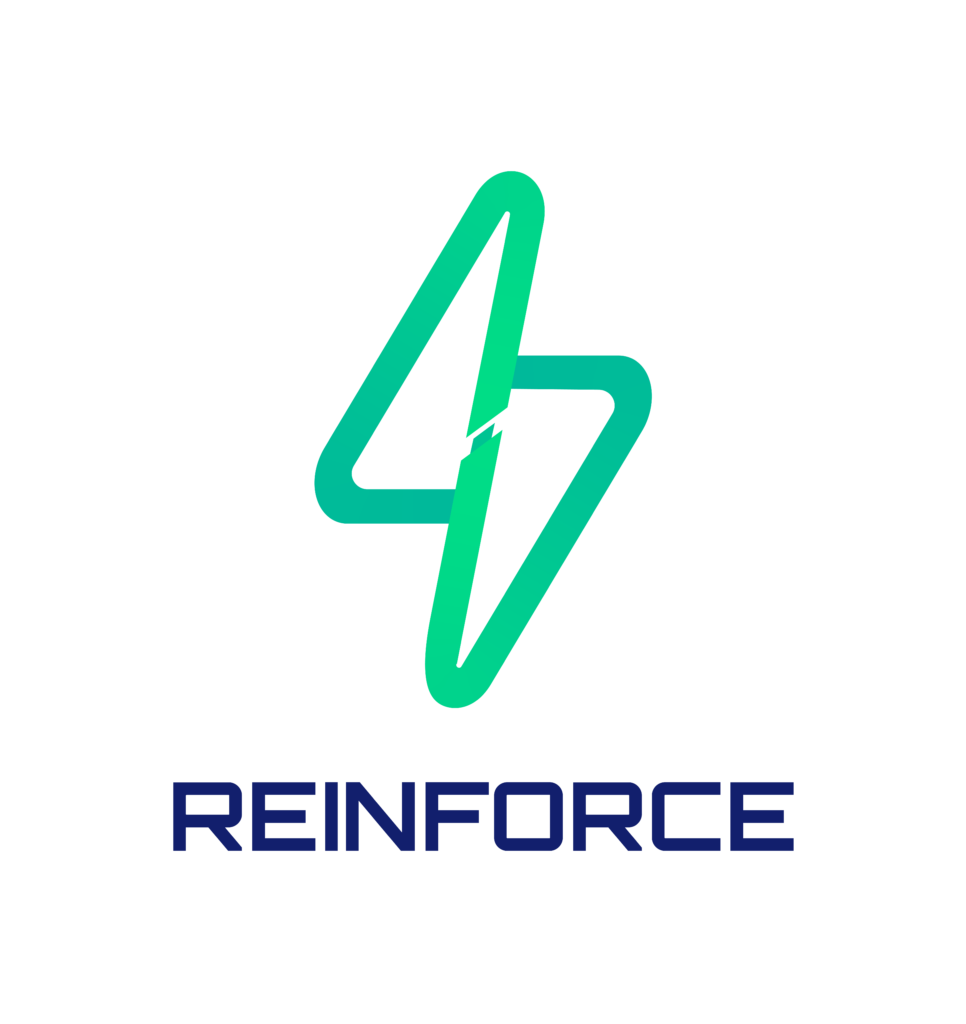NEWS AND EVENTS
Webinar
Battery Innovations for a Sustainable Europe: Key Insights from Six Horizon Europe Projects.
On December 2nd, REINFORCE participated in a webinar titled “Battery Innovations for a Sustainable Europe: Key Insights from Six Horizon Europe Projects.” This collaborative initiative among our sister projects provided valuable insights into how innovation within the battery industry is contributing to a sustainable and competitive Europe.
Our project’s scientific coordinator, Luís Oliveira, presented the progress REINFORCE has made over the past 18 months, as well as our upcoming plans until the project’s conclusion.
Please find the link to the recorded webinar for further viewing – here
Follow REINFORCE’s journey to explore innovations in lithium-ion battery recycling and our efforts to extend their lifecycle.
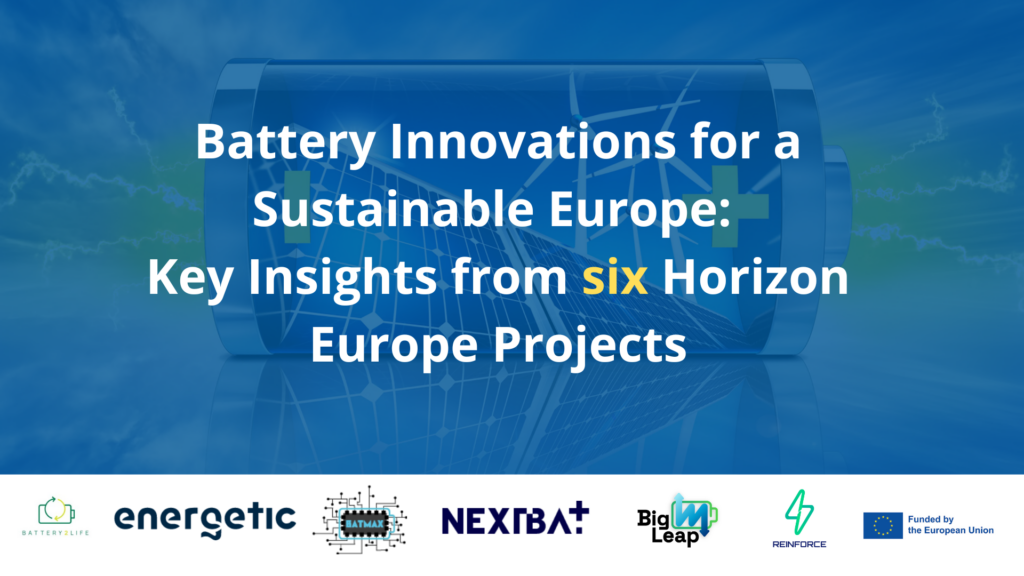
REINFORCE in Battery Innovation Days 2024
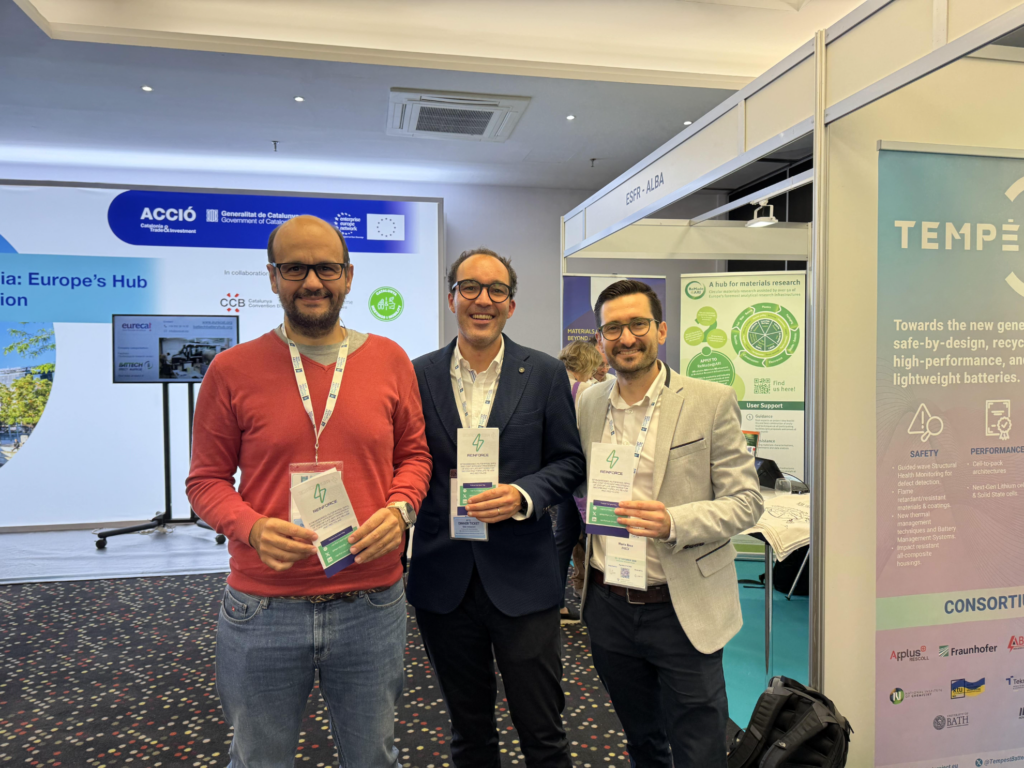
The REINFORCE project was well-represented at the recent Battery Innovation Days 2024 event in Barcelona! Our project coordinators, INEGI team, actively engaged with other key players in the European battery world, fostering collaborations and gathering the latest insights on battery innovation, recycling, and the circular economy.
Battery Innovation Days is a leading European event that brings together experts, researchers, and industry leaders to discuss the latest advancements in battery technology. REINFORCE’s presence at the event highlights our commitment to remaining at the forefront of battery innovation and contributing to the development of a sustainable battery value chain.
Our team’s participation in the event ensures that REINFORCE stays informed about the latest trends, challenges, and opportunities in the battery industry. This knowledge will be invaluable as we continue to develop and implement our innovative solutions for battery recycling, second-life applications, and the circular economy.
Stay tuned for more updates from REINFORCE as we continue to drive towards a more sustainable and circular battery value chain!
The Electric Vehicle Market in Europe and the Challenges of Transitioning to a (More) Sustainable Future
The electric vehicle (EV) market in Europe is booming, but what happens to those batteries when they reach the end of their life? 🤔
In a new opinion piece, REINFORCE Scientific Coordinator Luís Oliveira explores the challenges and opportunities of transitioning to a more sustainable EV future.
Key takeaways:
Recycling is essential: Recovering valuable materials from end-of-life batteries is crucial for minimizing environmental impact and resource depletion. ♻️
Second and third-life applications are key: Giving batteries a new purpose in energy storage and other applications extends their lifespan and reduces waste. 🔋
Collaboration is crucial: Building a sustainable battery value chain requires collaboration between industry, researchers, and policymakers. 🤝
Read the full article to learn more about the future of electric vehicles in Europe and how we can drive towards a more sustainable future. ➡️ here
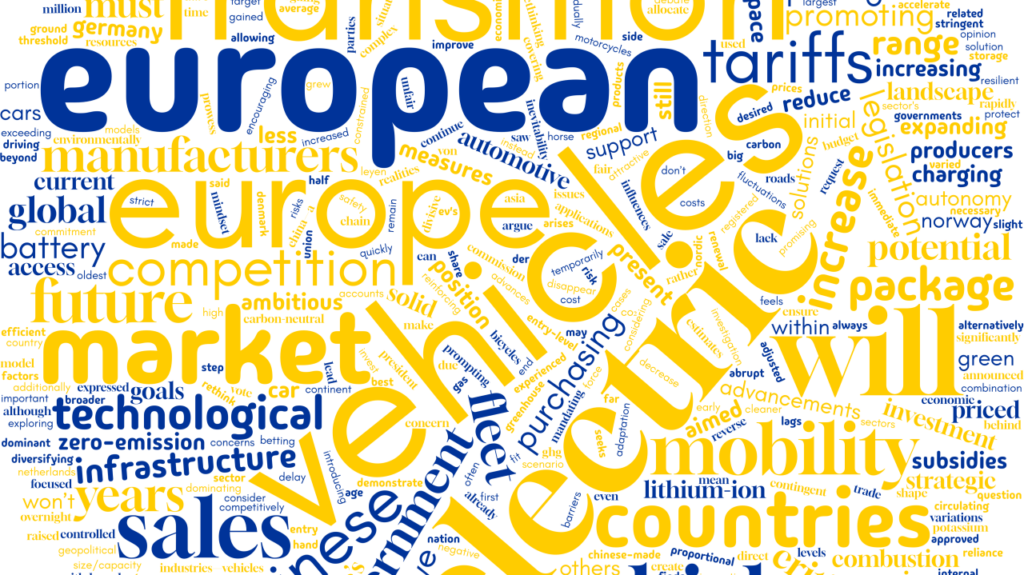
PRESS RELEASE - Torino, October 29, 2004
● The multi-year EU-funded project aims to create a sustainable and efficient approach to electric vehicle and stationary storage battery recycling
● Comau is tasked with developing an advanced robotic battery disassembly solution versatile enough to handle different battery sizes, types and configurations, including stationary packs
● By enhancing the disassembly process and ensuring the safety, efficiency, and performance of repurposed batteries, REINFORCE will help reduce waste while promoting the reuse of valuable materials
Comau announces its participation in the European Union’s REINFORCE project, which aims to address the growing need for effective end-of-life management of electric vehicle and stationary storage batteries. As part of this initiative, Comau has the dual role of managing one of the eight work plan groups and developing a versatile and safe dismantling solution for handling batteries and stationary packs based on robotics, machine learning and industry 4.0 concepts. Leveraging its extensive expertise in robotics, automation and e-Mobility, Comau intends to enhance the disassembly process, while ensuring safety, efficiency, flexibility and cost reductions.
Comau’s participation in the REINFORCE project underscores both its leadership in industrial automation and commitment to sustainability and innovation in the electrification sector. The project also aligns with Comau’s strategic focus on developing technologies that support the transition to a sustainable energy future. In building a comprehensive solution that efficiently handles compact battery and stationary pack formats, the project is helping address a critical aspect of the electric vehicle lifecycle and contributing to the broader goal of reducing waste and promoting the reuse of valuable materials.
The shared goal of the multi-faceted project is to create a standardized, automated, safe and cost-effective system that will repurpose spent batteries for second and third life use and recycling. To do so, it will focus on optimizing the collection and logistic path, improving diagnostics and recovery techniques, and implementing safe and efficient dismantling processes that optimize repurposing while allowing full traceability.
Looking specifically at Work Plan 5, for which Comau is the project lead, the team has been tasked with assessing dismantling safety procedures and standardization; developing automated disassembly processes for end-of-life (EoL) battery packs with different shapes and types, focusing on pack to module, module to cell, and cell to electrode disassembly; evaluating and developing a simulation of a fully automated large-scale disassembly processing; and reassembling the battery packs with desired parameters for second life applications.
“This project underscores the increasing need to develop a circular electrification path and represents a significant step forward in sustainable battery management, “said Giovanni Di Stefano, Comau’s Head of Engineering – Advanced Automation Solutions. “Our advanced robotic disassembly solution will not only enhance the efficiency and safety of the disassembly process but also support the circular economy by maximizing the recovery and reuse of materials from end-of-life batteries.”
Comau is also part of multiple pan-European e-Mobility projects. In addition to its participation in the REINFORCE project, Comau is involved with Upcell – European Battery Manufacturing Alliance, an association that promotes the creation of an integrated European value chain for the development and production of electric batteries. Indeed, the company’s steadfast dedication to energy transformation solutions is further seen through its active involvement in various industry alliances; among which three of Europe’s top battery consortiums: European Battery Alliance (EBA), the Batteries European Partnership Association (BEPA) and the European Technology and Innovation Platform (ETIP). Comau also participates in numerous other projects regarding electrification as part of the HORIZON 2020 and HORIZON EUROPE programs. These include, but are not limited to, SPINMATE, aimed at large-scale manufacturing of next-generation solid-state battery cells and modules, GIGABAT, a collaborative e-Mobility project aimed at strengthening the EU production chain for large-scale cell manufacturing, and FASTEST, which seeks to accelerate the development process of reliable, safer and more durable batteries.
Press Office – Headquarters
Giuseppe Costabile giuseppe.costabile@comau.com | Mob. +39 338 7130885
Monica Cavaliere monica.cavaliere@comau.com | Mob. +39 338668422
Battery Event Lyon 2024
Dassault Systèmes was present in Battery Event, at Lyon, in October.
REINFORCE was also present at their stand, allowing us to showcase our journey in recycling lithium-ion batteries while also demonstrating how we can give them a second and third life. This initiative not only highlights the importance of sustainable practices in battery management but also emphasizes our commitment to reducing waste and promoting circular economy principles. By repurposing these batteries, we can extend their usability, minimize environmental impact, and contribute to a more sustainable future.
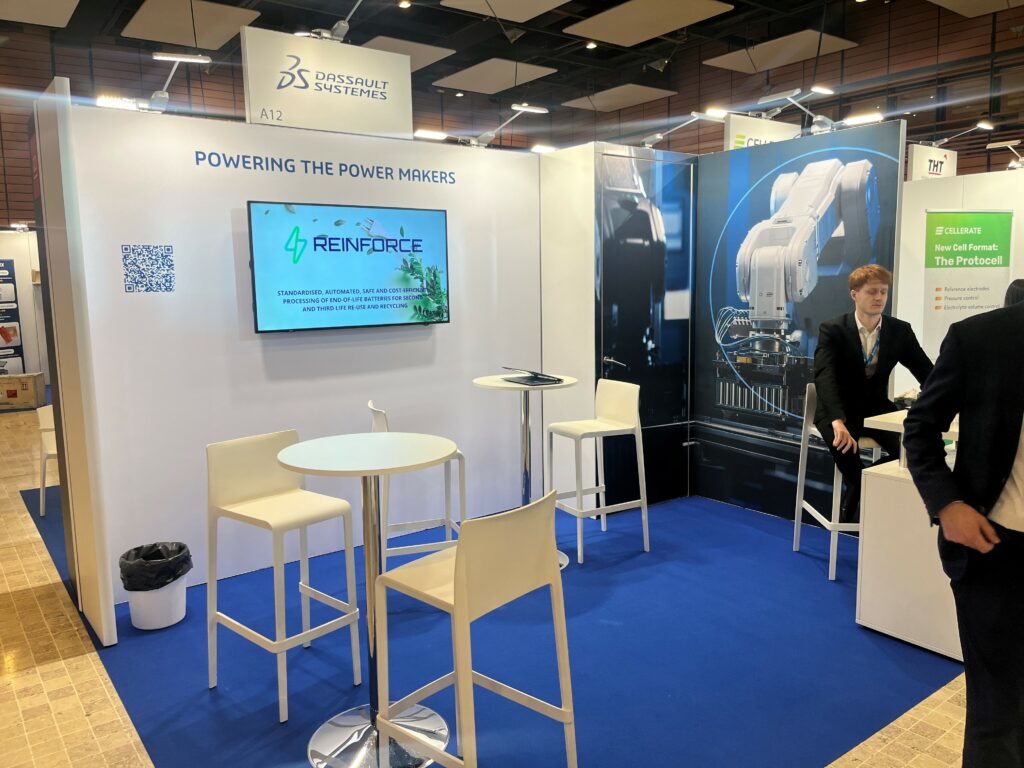
REINFORCE PRESENTATION VIDEO
Our video summarises our objectives and how the REINFORCE project aims to achieve them.
We are looking forward to keeping you informed about this ambitious journey, which will change the battery value chain and impact Europe’s circular economy.
